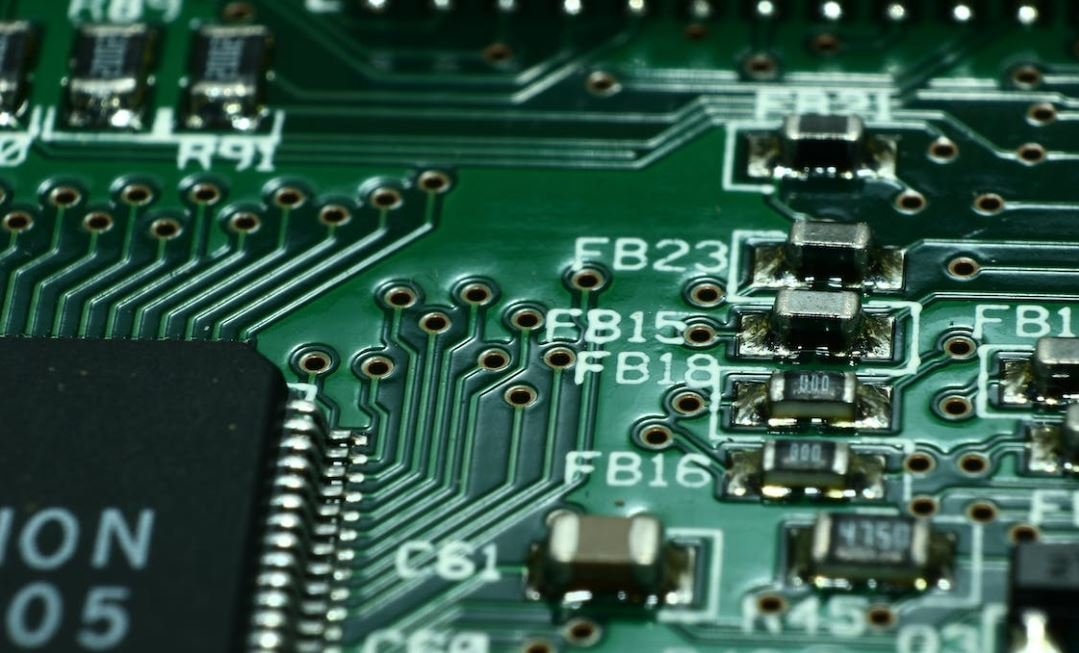Can AI Make AI?
Artificial intelligence (AI) has revolutionized many industries, impacting everything from healthcare to finance. But can AI itself create other AI technologies? This concept, known as artificial general intelligence (AGI), has both fascinated and concerned experts in the field. In this article, we explore the possibility of AI creating AI, the current advancements, and the potential implications.
Key Takeaways:
- Artificial general intelligence (AGI) refers to AI systems that can perform any intellectual task that a human can do.
- The concept of AI creating other AI technologies, termed AI+AI, is still in the early stages of development.
- Researchers are exploring various approaches, including using AI to automate different aspects of the AI development process.
- AI made by AI could potentially lead to faster advancements, increased efficiency, and new discoveries.
- However, concerns about AI safety, ethics, and potential job displacement remain.
AI systems have demonstrated significant progress in various domains, such as image recognition, natural language processing, and robotics. However, the ability to create AI systems that surpass human performance in multiple domains remains an ongoing challenge. Researchers are working towards developing AGI that can not only mimic human intelligence but also possess the ability to improve upon itself.
One approach being explored by researchers is using AI algorithms to automate different stages of the AI development process. For example, AI algorithms can analyze large datasets, identify patterns, and generate code, reducing the need for human intervention. This automated approach can potentially accelerate the pace of AI development and allow for widespread deployment of AI applications. By automating AI development, researchers can significantly improve efficiency and scalability.
| Approach | Advantages | Limitations |
|---|---|---|
| Evolutionary algorithms | – Can explore a large search space – Adapts to changing environments – Can optimize AI architectures |
– Requires significant computational resources – Time-consuming process – May not always converge to optimal solutions |
| Neural architecture search | – Can discover novel AI architectures – Reduces manual effort in designing architectures – Can adapt to different problem domains |
– Computational overhead – Increased training time – Search space can be vast |
While the idea of AI creating AI holds immense potential, there are concerns that need to be addressed. Safety is a critical aspect, as AI systems with the ability to self-improve might surpass human control. Additionally, ethical considerations, such as bias in AI decision-making and accountability, should be carefully evaluated. It is crucial to establish governance frameworks and regulatory measures to ensure AI development proceeds responsibly.
Implications and Future Directions
AI systems capable of creating their own improvements can revolutionize industries and society as a whole. From healthcare to transportation, these AI advancements could lead to breakthroughs in various fields. The potential for AI systems to uncover solutions beyond human comprehension is both exciting and slightly daunting.
As we continue to explore the boundaries of AI development, it is essential to consider the ethical and societal implications. Transparency in AI decision-making, addressing biases, and ensuring that AI benefits all stakeholders are key factors in shaping the future of AI. AI made by AI has the potential to shape our world in unprecedented ways, and responsible development is crucial for a positive outcome.
- Establish clear guidelines for ethical AI development.
- Foster collaborations between AI developers and experts in diverse fields.
- Continuously monitor and mitigate potential risks associated with AI development.
| Challenges | Solutions |
|---|---|
| AI safety | – Develop mechanisms to ensure human control over AI systems – Implement rigorous testing and validation processes |
| Job displacement | – Encourage reskilling and upskilling programs – Redefine work responsibilities to complement AI systems |
In conclusion, the concept of AI creating AI represents an exciting frontier in the field of artificial intelligence. While AI made by AI holds enormous potential, it also raises ethical and safety concerns. Continued research, collaboration, and responsible development are necessary to harness the benefits of AI advancement while mitigating its risks.

Common Misconceptions
Misconception 1: AI can fully develop another AI on its own
One common misconception is the belief that AI systems have the capability to autonomously create and fully develop another AI system, working without any human intervention at all. In reality, AI can assist in certain aspects of AI development, but it cannot completely replace human involvement.
- AI can provide data analysis and insights to assist human developers.
- AI can automate some parts of the AI development process.
- Human expertise is crucial for making nuanced decisions in AI development.
Misconception 2: AI algorithms can invent new AI architectures
It is often mistakenly assumed that AI algorithms can invent new AI architectures, creating innovative and never-before-seen models. However, while AI algorithms can optimize and improve existing architectures, they are not capable of inventing entirely new ones on their own.
- AI algorithms can optimize parameters and hyperparameters of existing architectures.
- AI algorithms can adapt and refine existing architectures for specific tasks.
- Human expertise is required to design and create novel AI architectures.
Misconception 3: AI can outperform human developers in AI creation
There is often a misconception that AI systems are superior to human developers and can outperform them in creating AI systems. While AI can automate certain tasks and provide efficiency gains, human expertise and creativity are still essential for tackling complex problems and pushing the boundaries of AI.
- AI can assist in automating repetitive tasks in AI development.
- AI can accelerate certain stages of the AI development process.
- Human developers bring creativity, intuition, and problem-solving skills that AI lacks.
Misconception 4: AI can replace the need for human involvement in AI development
Contrary to popular belief, AI cannot completely replace the need for human involvement in AI development. While AI can streamline certain tasks and make processes more efficient, human developers are still required for critical decision-making, ethical considerations, and overall system design.
- AI can aid in automating data preprocessing and cleaning.
- AI can assist in automating model selection and hyperparameter tuning.
- Human involvement is necessary for ethical decision-making and understanding societal impact.
Misconception 5: AI can surpass human intelligence and create superior AI
Often portrayed in popular culture, there is a common misconception that AI has the potential to surpass human intelligence and create AI systems far superior to anything humans could develop. However, the concept of “superintelligent” AI remains speculative and theoretical, with many experts warning about the ethical implications and challenges associated with achieving such a level of AI.
- AI development is currently focused on narrow domains and specific tasks.
- The theoretical concept of superintelligent AI is still debated and remains hypothetical.
- Ensuring safety and ethical considerations is crucial in AI development.

Introduction
In recent years, the development of artificial intelligence (AI) has been progressing at an astounding pace. One fascinating aspect of AI is its potential to create and improve upon its own kind. This article explores the concept of AI building AI and presents ten intriguing tables showcasing various facets of this remarkable technology.
Table: The Evolution of AI
This table charts the progression of AI over time, reflecting the incredible advancements made in the field. It highlights key milestones such as the creation of the first neural network and the development of deep learning algorithms.
Table: AI’s Influence on Different Industries
Here, we examine how AI has revolutionized various industries, including healthcare, finance, and transportation. The table showcases the impact of AI in terms of improved efficiency, cost savings, and enhanced decision-making processes.
Table: The Top AI-Powered Devices in Everyday Life
From voice assistants to smart thermostats, this table identifies the most prevalent AI-powered devices used in our daily routines. It reveals the convenience and comfort these technologies bring to our lives, optimizing tasks and simplifying processes.
Table: AI’s Impact on Job Market
With the rise of automation, many people wonder about the effect of AI on employment. This table analyzes data on job displacement and job creation, shedding light on how AI transforms the job market rather than replacing it entirely.
Table: AI Ethics Considerations
As AI becomes more advanced, ethical considerations become increasingly important. This table provides an overview of the key ethical considerations in AI development and usage, ranging from bias and privacy concerns to accountability and transparency.
Table: AI and Sustainable Development Goals
In alignment with the United Nations‘ Sustainable Development Goals, this table demonstrates how AI can contribute to solving global challenges such as poverty, climate change, and healthcare accessibility.
Table: AI-Powered Art and Creativity
AI’s creative capabilities extend beyond optimization and problem-solving. This table showcases stunning and thought-provoking artworks generated by AI systems, blurring the boundaries between artificial and human creativity.
Table: AI’s Role in Scientific Discoveries
Scientists are increasingly leveraging AI to make groundbreaking discoveries. This table presents notable scientific breakthroughs facilitated by AI, including the discovery of new exoplanets and advancements in drug development.
Table: Public Perception of AI
Public perception plays a significant role in shaping the acceptance and adoption of AI technologies. This table highlights surveys and studies that gauge public sentiment towards AI, reflecting both excitement and concerns.
Table: Future AI Applications
The potential applications of AI are limitless. This table explores some futuristic possibilities, such as AI-powered robots for space exploration and AI-assisted healthcare technologies that can diagnose diseases with unparalleled accuracy.
In conclusion, AI’s ability to create and improve upon its own kind opens up a world of possibilities for advancements and innovations. The tables presented in this article capture the breadth and depth of AI’s impact across various domains, from everyday life to scientific breakthroughs. The data and insights provided emphasize the transformative potential AI offers and reinforce its role as a catalyst for progress.
Frequently Asked Questions
Can AI create AI?
Can artificial intelligence develop other artificial intelligence?
Can AI learn from its own mistakes?
Can artificial intelligence learn from its own errors?
What are the implications of AI creating AI?
What are the consequences of AI systems developing other AI systems?
What challenges exist in AI creating AI?
What obstacles or hurdles arise in the process of AI developing AI?
Can AI outperform human-made AI models?
Is it possible for AI to surpass the performance of AI models created by humans?
Can AI replace the need for human developers in creating AI?
Will AI eliminate the necessity of human programmers in AI development?
How can the progress of AI creating AI be regulated?
What measures can be taken to regulate the advancement of AI systems developing AI?
Are there any risks associated with AI developing AI?
What are the potential hazards or risks linked to AI systems developing other AI systems?
What future developments can be anticipated in AI creating AI?
What can we expect in terms of future advancements in AI systems developing other AI systems?




